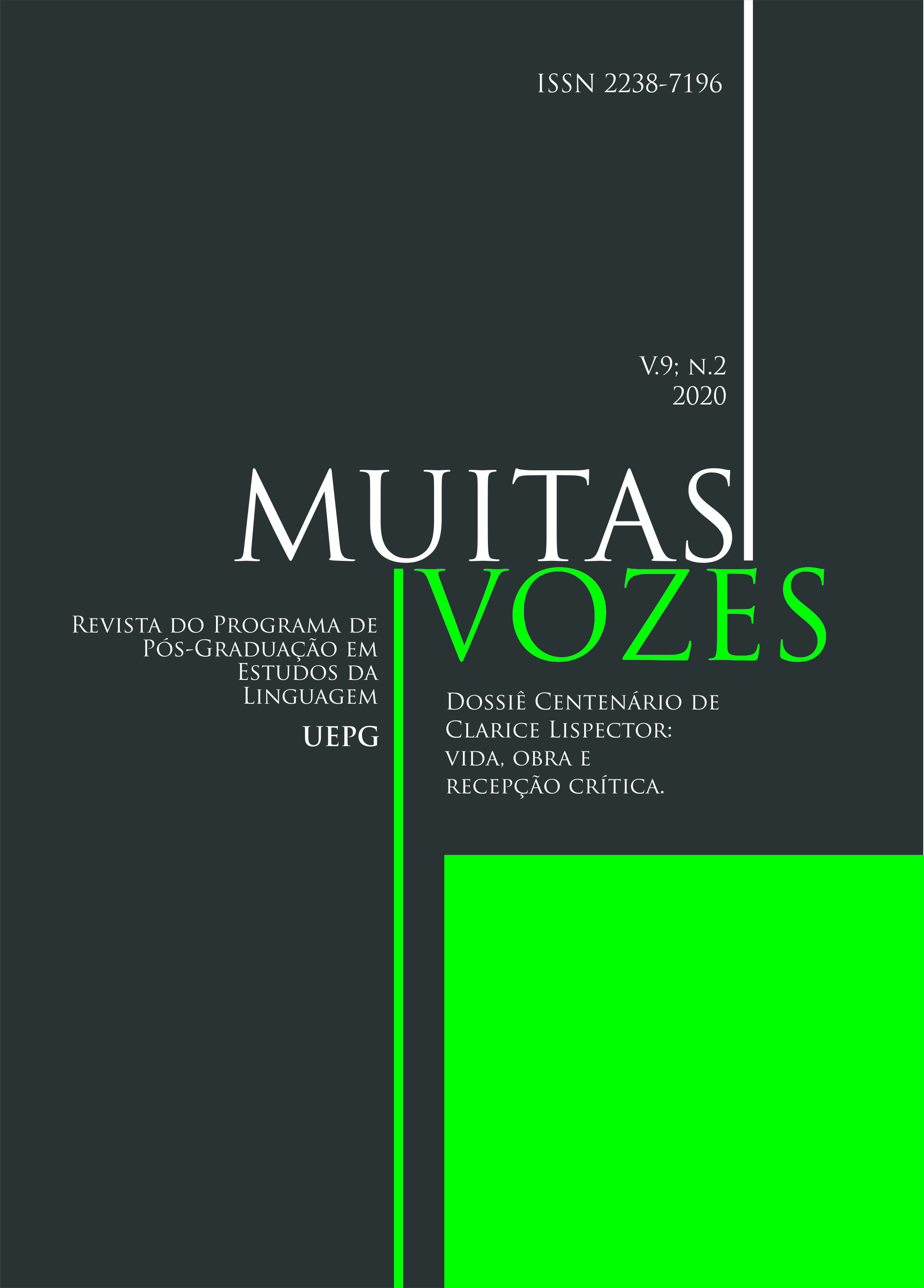O PAPEL SOCIAL FEMININO NO CONTO “A FUGA”, DE CLARICE LISPECTOR
Résumé
Este artigo teve por objetivo analisar o conto “A fuga”, de Clarice Lispector, publicado no ano de 1940, a m de discutir aspectos ligados ao papel feminino, figurado na protagonista Elvira. Buscou-se situar a produção literária da autora no contexto da década de 1940, quando ainda predominavam narrativas de cunho regionalista. No que tange aos resultados obtidos com a presente análise, que se deu sob à luz de estudos de Brasil (1969), Candido (1970, 1987a, 1987b), Süssekind (1984), Nunes (1989), Santiago (1999), Bourdieu (2012), Bosi (2015), Zolin (2015), entre outros, foi possível constatar que a autora, além de apresentar um modelo narrativo e estético dissonante à ficção de 1940, fraturando o compromisso de retratar a realidade brasileira, também desnudou a realidade social feminina, promovendo uma crítica aos valores patriarcais e aos padrões dominantes de gênero.
Téléchargements
Téléchargements
Publié-e
Comment citer
Numéro
Rubrique
Licence

Este obra está licenciado com uma Licença Creative Commons Atribuição 4.0 Internacional.
Transferência de direitos autorais: Caso o artigo submetido seja aprovado para publicação, JÁ FICA ACORDADO QUE o autor AUTORIZA a UEPG a reproduzi-lo e publicá-lo na REVISTA MUITAS VOZES, entendendo-se os termos "reprodução" e "publicação" conforme definição respectivamente dos incisos VI e I do artigo 5° da Lei 9610/98. O ARTIGO poderá ser acessado tanto pela rede mundial de computadores (WWW - Internet), como pela versão impressa, sendo permitidas, A TÍTULO GRATUITO, a consulta e a reprodução de exemplar do ARTIGO para uso próprio de quem a consulta. ESSA autorização de publicação não tem limitação de tempo, FICANDO A UEPG responsável pela manutenção da identificação DO AUTOR do ARTIGO.



